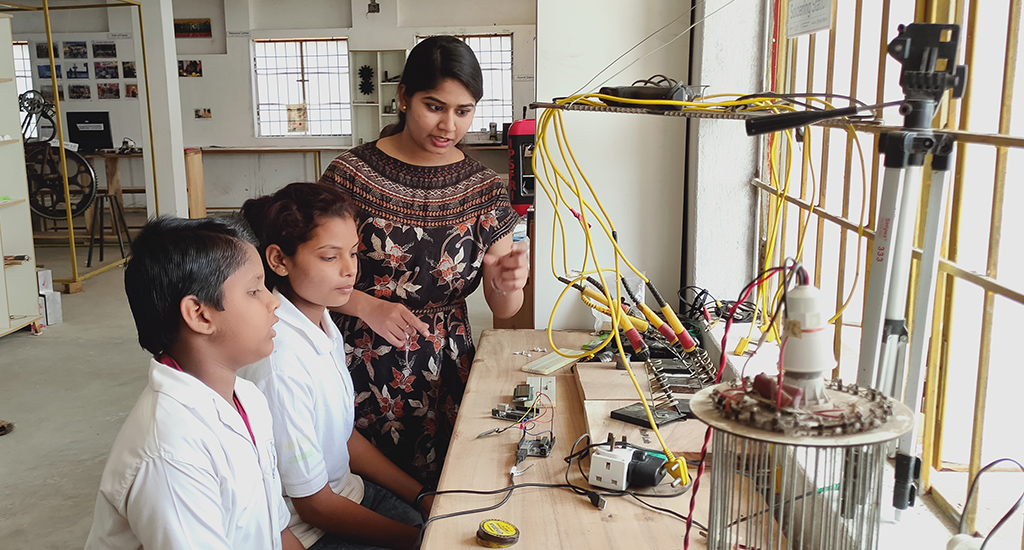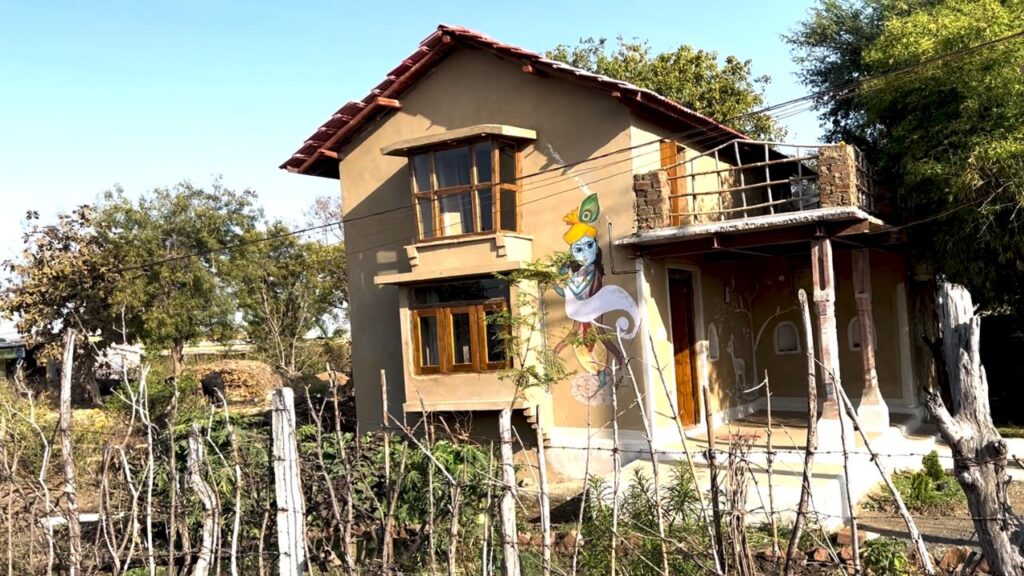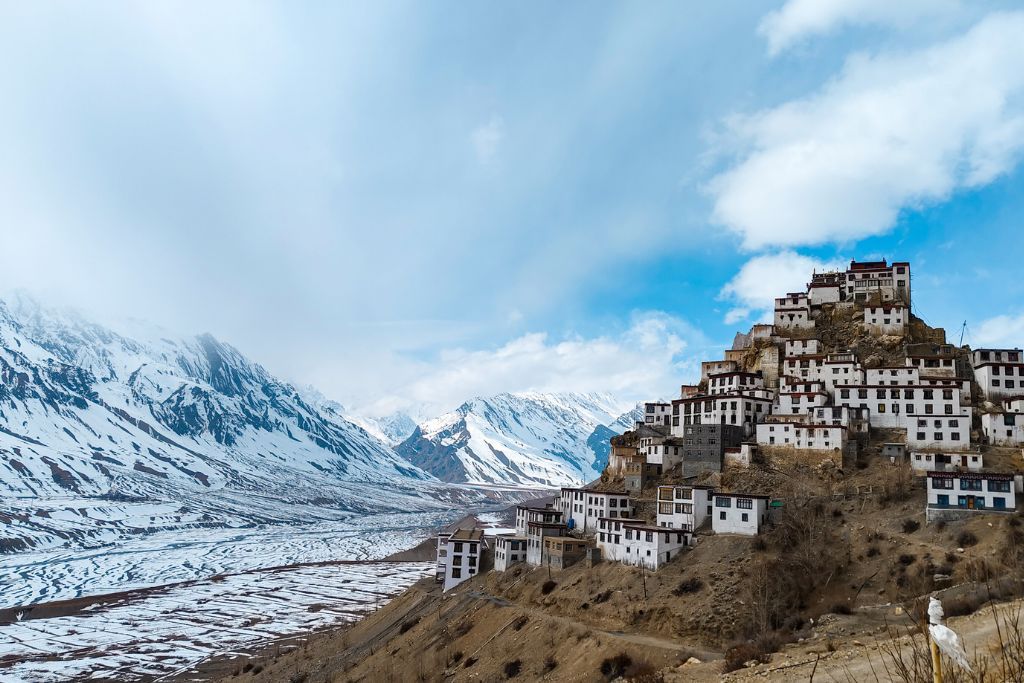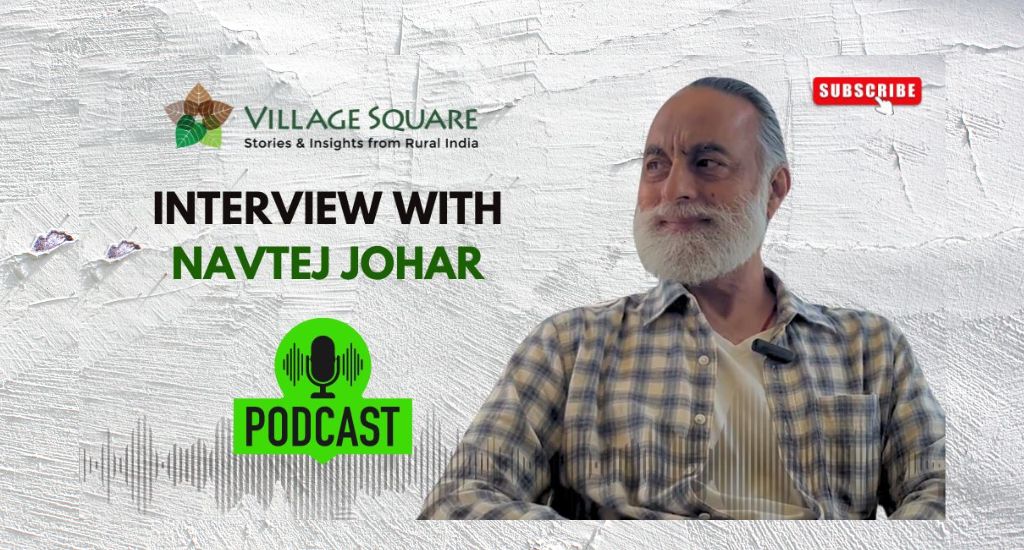In 2020 when the world was obsessed with the COVID-19 pandemic, a young Odisha engineer was focused on fixing cosmic rovers, never mind most of his neighbours had not ventured beyond the capital Bhubaneswar, 45 km away.
But Anil Pradhan wanted to build a team that could participate in the NASA Human Exploration Rover challenge, a coveted global competition.
He had approached government-run industrial training institutes (ITIs) and received 800 applications.
Among the applicants was Kailash, a young bicycle mechanic.
“He learnt from the internet that a rover is a vehicle with four wheels. We were impressed with his reasoning that fixing a 4-wheeled vehicle couldn’t be different from a 2-wheeled cycle,” said Pradhan.
Rina, a welder, reasoned that making a vehicle would certainly need welding.
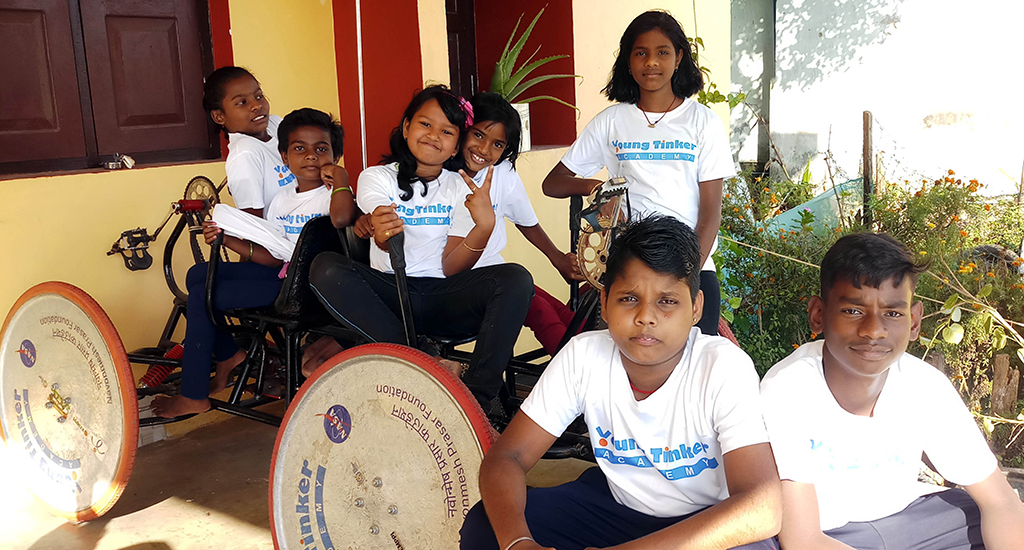
Gradually, a 10-member rover team was formed. Most of the children were from rural areas and without any technical knowledge. Pradhan, along with engineer Vaishali Sharma, trained the team for about nine months. The result? The team bagged “World Rank – 3,” becoming the first under-19 team from Asia to achieve the feat.
The NASA challenge is just one of Pradhan and Sharma’s many initiatives to take science and innovation to rural students.
Lack of hands-on learning
When he was a schoolboy in his village Baral in the Cuttack district Pradhan never got a chance to explore beyond books. Even then he felt that a more interactive education would foster creative thinking better.
Then when he joined an engineering college, he was disappointed that it was more theoretical teaching than hands-on.
Sharma, his batchmate in college, shared similar views.
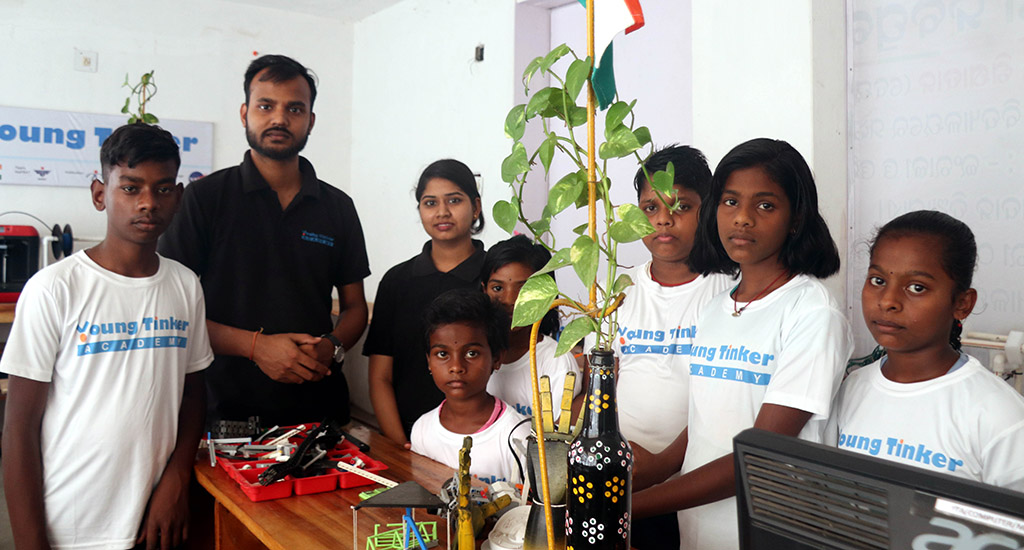
While in their second year of college in 2014 they started an alternative education school, or acadmey, in Baral with three children. A tin shed was all they could afford with the prize money from a competition.
Alternative learning
After school each day, they spent time learning through the concept of touch-and-feel.
“Our alternative learning sessions are customised. For instance, with the younger kids we begin with an exercise to arouse their curiosity. We tell them interesting facts about electronics, robotics or any subject they’re interested in,” said Sharma.
The subjects are from daily life which the children could connect with, like how everyday electronics work.
The team would get a television or a computer from recyclers. The children learn the parts and their functions while dismantling them.
“We learn the practical aspects of what we learn in school,” Basudev Bhoi, a student who worked on an underwater robot, told Village Square.
A formal set-up for informal learning
Soon more and more children started to join the duo’s academy.
So in 2015 they formed the non-profit organisation Navonmesh Prasar Foundation – meaning ‘communicating innovation’ in Sanskrit – to run the school.
The foundation has three projects: Young Tinker Academy, School for Rural Innovation and the Innovation Lab.
“Our work is to give that initial spark to ignite the fire.”
Anil Pradhan
The labs have two methods. For tod, phod, jod (deconstruct and construct) the children take apart electronic items, while kabaad se jugaad (making use of junk) is where they find working parts from electronic junk, like a motherboard or a circuit, and use to make something else.
Widening the ‘school’
“Contrary to myths, rural kids can also pick up coding and electronics easily,” Pradhan told Village Square. (Also read: Rural youth turn software developers right after school)
Providing the right environment and resources helps the children learn easily.
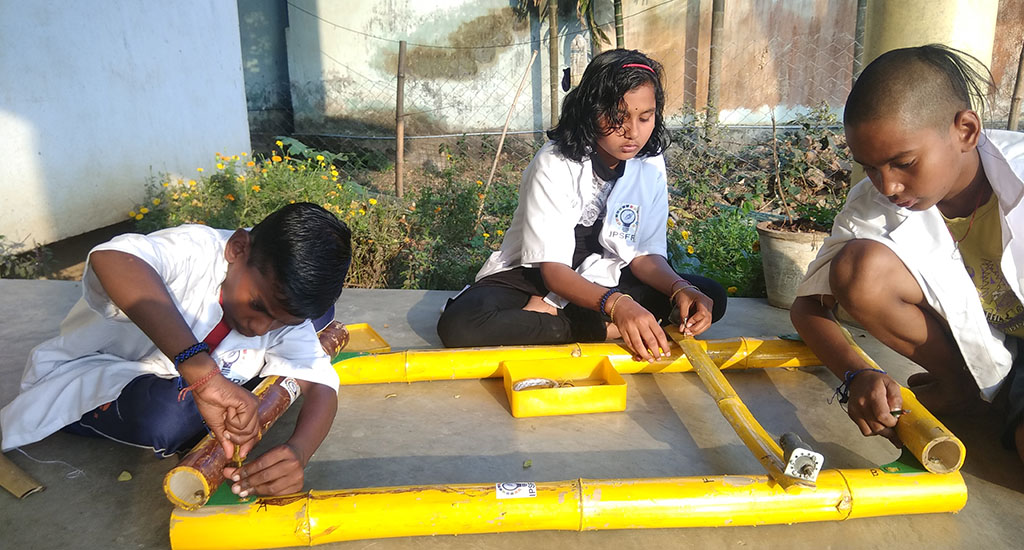
“My daughter, Archita, attends these classes after school,” said Anusaya Beura of Baral. “My relatives in Bhubaneswar are surprised because even the capital doesn’t have such schools.”
Happy with the progress they were making, Pradhan and Sharma started conducting workshops in neighbouring villages.
Increasing demand
News of the duo’s workshops spread. Many villages invited them to conduct workshops for their children.
Sometimes their college friends helped too. As the college was about 300 km from Baral, some would skip classes to teach the kids.
They conducted 7-day or 15-day workshops, customising them as per the children’s age. So far they have taught children in eight villages – besides Baral – through their workshops.
The duo has set up laboratories in two villages, similar to the one in their Baral school. They carry computers when they have to conduct workshops in other villages.
The Baral school has 15 computers, which the children are allowed to operate, after some initial mentoring.
Working through the pandemic
But while the innovative learning is seamless, revenue is a challenge that got worse during the pandemic.
“When the schools were closed, children couldn’t come. So we took the laboratory to them,” said Pradhan.
Through Young Tinker Academy, they provided science kits to children and connected them with a mentor, who would be a graduate engineer trained by the duo.
Most of the kits’ parts have been printed in the lab by the children using a 3D printer with some parts bought online. The kits have been sold to several cities in India as well as abroad.
The students choose from different kits, which include satellite-making and building humanoid robots – priced between Rs 25,000 and 1.4 lakh.
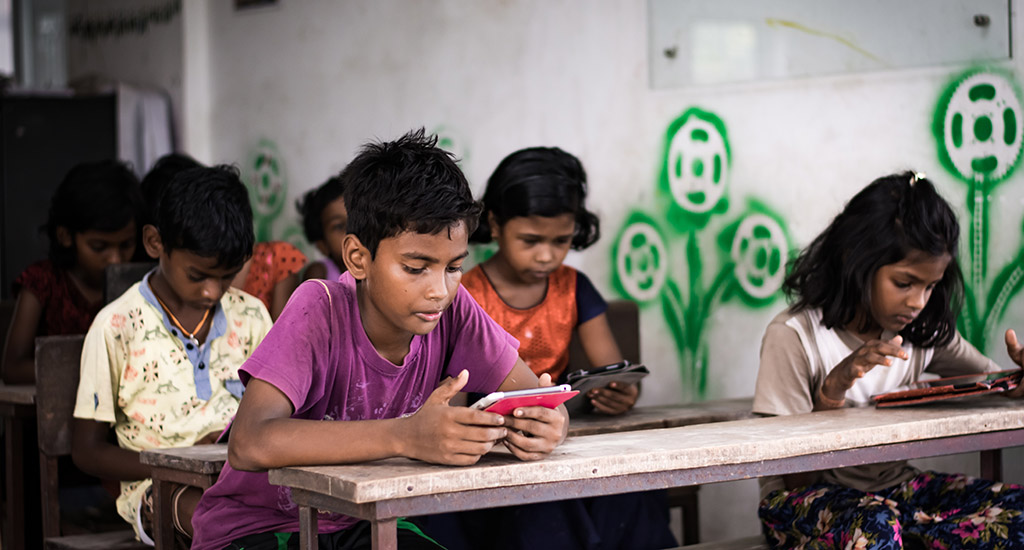
Nearly 120 kits have been delivered. About 30% of the revenue is used for developing Baral. The revenue from conducting workshops in urban and private schools is also routed to the rural labs.
Nurturing young minds
Once a student, now Kailash is a project developer with the Young Tinker Academy.
“The rover challenge brought me out of my comfort zone. I’ve learnt coding and electronics,” he said. “I’ve joined a course to learn more.”
Pradhan and Sharma said they try to focus on skills that will still be used in the future.
“When we teach, we ask ourselves if the lesson will be relevant after 12-13 years when the child completes schooling and steps into the world,” said Pradhan.
The Navonmesh Prasa duo will continue to experiment and bring innovation like true education scientists.
“There will be an Einstein or Kalam sitting in some village. Every child is a maker. Developing their curiosity is important,” said Pradhan. “Our work is to give that initial spark to ignite the fire.”
Tazeen Qureshy is a freelance journalist based at Bhubaneswar.
